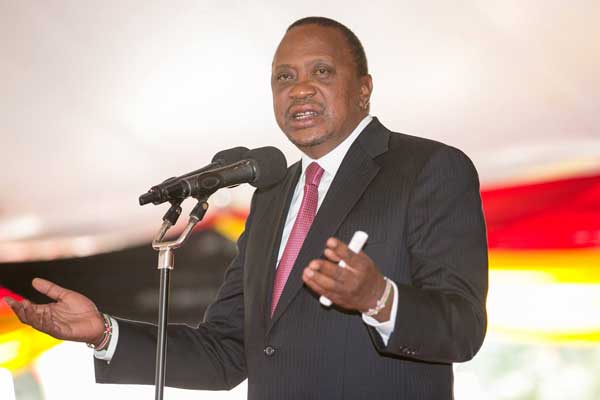Kenyan President Uhuru Kenyatta on Friday said a new and unpopular tax on petroleum products was necessary, but that he wanted to cut it to 8 percent from 16 percent.
The government had faced a fuel dealers’ strike, anger among commuters and a lawsuit after transport and fuel prices jumped when the 16 percent value-added tax on all petroleum products entered into force on Sept. 1.
Kenyatta rejected on Thursday a parliamentary finance bill that sought to postpone the tax altogether. Parliament will reconvene next week to examine Kenyatta’s new proposal.
The implementation of the new value-added tax on fuel is a key to government plans to shrink its fiscal deficit while funding essential programmes, Kenyatta said.
“Further delay in the implementation of the tax would compromise our ability to deliver basic services to Kenyans, and to maintain the trajectory of our development,” he said, while adding that he wanted to lower the rate because of the tax’s impact on the cost of living.
In a rare rebuke of parliament, Kenyatta said the bill failed to help the government fulfill its basic obligations to the people.
“It took the easy path, instead of rising to the challenges of our time. It was good politics, but bad leadership,” he said in a televised address.
He attributed his decision to the need to fund development as well as new layers of government created by the 2010 constitution.
“I must make a delicate balance between short-term pain and long-term gains,” he said in a televised address.
Some critics of the fuel tax welcomed his proposal.
“It is laudable,” said Simon Kimutai, the chairman of Matatu (minibuses) Owners Association, whose members control 80 percent of the country’s public transport.
“He has shown he minds about Kenyans. Cutting it by 50 percent would definitely cut the prices of commodities and services which were rising,” he said.
The government would still face funding gaps after the new, lower VAT rate on fuel, Kenyatta said, adding that he had proposed cuts to the government’s spending plan across the board.
Some of those savings would be directed towards the budgets of institutions tasked with fighting corruption, including the judiciary and the prosecution service, to speed up corruption and economic crime cases.
Parliamentary leaders and lawmakers were not immediately available for comment, but Kenyatta’s Jubilee party and its allies enjoy a comfortable majority in the house.
The International Monetary Fund has said it would consider extending a stand-by loan arrangement that expired this week, if the budget deficit is reduced. That put pressure on the exchange rate, but the IMF said on Friday that Kenya had adequate hard currency reserves and pledged to keep supporting reform.
Kenyatta did not mention a cap on commercial lending rates. Lawmakers voted to keep the cap in the finance bill, defying a move in June by Finance Minister Henry Rotich to remove it.
Source: Reuters



